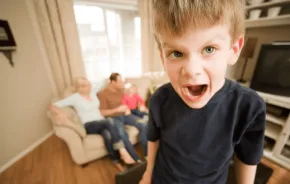The work that I do is often described by statistics: More than 1
billion people worldwide do not have access to safe water. Five million
people die each year because of water-related disease. But I think the
problem is best described by the real people behind the numbers.
One of them is Dilium Araya. Born and raised in Echele, a village in
northern Ethiopia, 30-year-old Dilium was already the mother of six
children when I met her in 2004.
At 5 a.m., Dilium awakens to nurse her infant son, Medin, and make a
breakfast of injera bread and chick-pea soup for her family.
Around 6 a.m. Dilium and her 11-year-old daughter, Asmaraha, strap
empty 5-gallon plastic containers on their backs and begin the walk to
collect water. It's a 14-mile journey that takes them six hours to
complete.
Dilium leaves Medin at home under the watch of her 7-year-old daughter,
Kidame. While Dilium is gone, Medin misses two feedings. Dilium once
told me that some days she doesn't have enough breast milk for Medin,
and I thought of the calories she was burning simply collecting water.
When we reach the water source, the sight breaks my heart. It's a hole
in the middle of a dry riverbed with women lined up waiting their turn
to scoop out, cup by cup, their daily water. Goats and other animals
meander nearby. Feces cover the ground. This is not just a water hole
for humans, and it is clearly not drinkable water, but there is no
other option for this village of 500 people.
After filling her water container, Asmaraha bends over deeply to get
the 40-pound vessel up on her back, the ropes visibly pulling her
little shoulders tightly together.
For the rest of the day, Dilium prepares food, makes coffee and takes
care of the family's chickens and goats. She skips lunch herself so
that the rest of the family can have more food. In the evening, if
there is time, she will make a second trip to the water hole.
Dilium has lost one child so far to diarrhea, caused by drinking unsafe
water. Every woman I met in Echele had lost at least one child. When I
asked Dilium what she does when her children are sick, Dilium said that
she carries them to the nearest health clinic, which is 18 miles one
way on foot.
I am humbled by women like Dilium. I don't know how such women and men
maintain their families and their spirits and still literally say a
prayer of thanks every day for what they have been blessed with. I am a
mother too. My son Calvin is a 6-year-old kindergartner, and Melina is
4. One of Calvin's favorite ways of protesting my requests is to deem
them "not fair." Calvin has learned from experience that this doesn't
go over well with me, especially when I have just returned from
Ethiopia or somewhere else. I say, "What was that, Calvin?" and he
rolls his eyes and says, "I know, Mom. I know. At least I have water."
Truthfully, this is something that I really struggle with. Every day,
my job is about trying to help people who have really been dealt an
unfair hand in life -- they don't even have water or a simple toilet. I
struggle with my own decisions about the kind of life I lead as I try
to comprehend "What is my fair share?"
I'll probably never know the answer to that question, but I do feel
that as a person who by the sheer luck of my birth has access to wealth
and opportunity, I must show compassion. Real compassion. Not just
emotion or good feelings, but compassion that commits. Compassion that
acts.
I believe that the work of Water 1st represents that kind of real
compassion. Through the safe water and sanitation projects we support
around the world, I see communities transformed from places where
children routinely die of preventable diseases to places where children
live healthy lives. From places where women and girls spend their days
carrying water to places where girls have time to go to school. There
are also benefits we can't measure but we know are greatly valued by
the people we serve, such as privacy and dignity and a life free from
the drudgery of carrying water.
Every single individual on earth has both the potential and the right
to live a decent life. It's my belief that the water projects we
support are the first large step on that path.
Water 1st International is a ParentMap Giving Together partner.
Marla Smith-Nilson is the Executive Director of Water 1st International
Originally published in the April, 2007 print edition of ParentMap.









